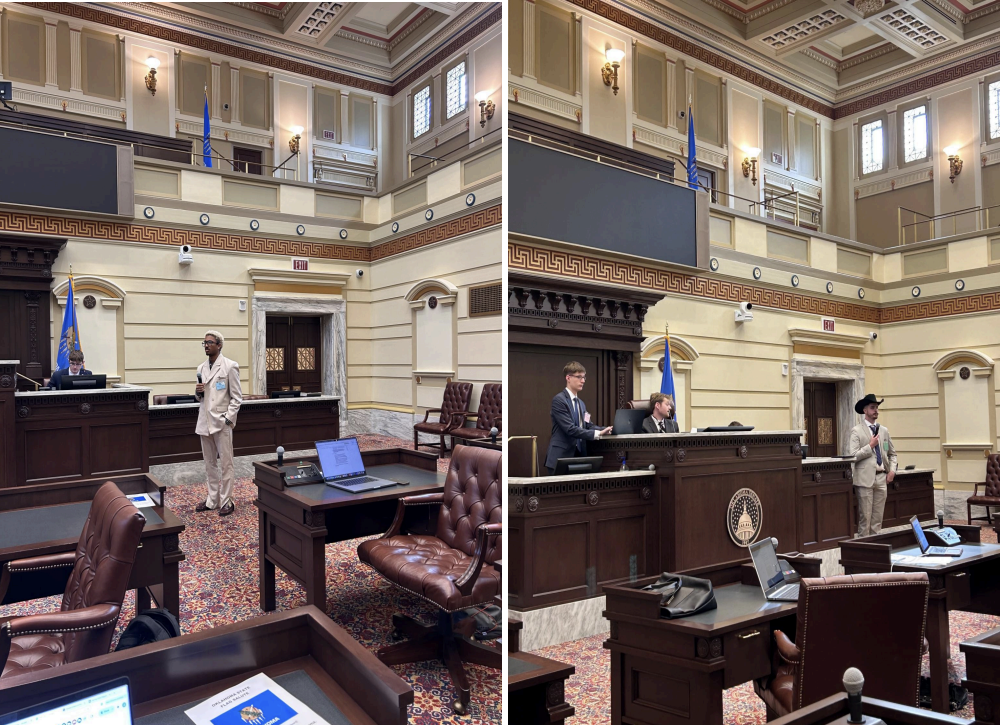By: Journalist Stephanie Conchas (ORU)

The 1st Session of the 56th Oklahoma Intercollegiate Legislature (OIL) has so far had every House bill brought before the Senate denied.
Despite passionate questions, carefully crafted amendments and spirited advocacy from House members, no bill garnered enough support in the Senate to move forward.
This scenario highlights the intense scrutiny bills undergo as they traverse the legislative process. From school safety to medical marijuana regulations and minimum wage increases, the proposals addressed a range of pressing issues. However, the Senate’s rejections reflect a combination of procedural challenges, competing priorities and disagreements over policy details.
The failure of the “Leave Our Kids Alone” (OSU-517) act, which sought to establish clear protocols for law enforcement use of lethal force in schools, is one example of this legislative roadblock. Although the bill aimed to prioritize student safety, concerns about the act’s scope, potential implications and clarity ultimately swayed Senate members to vote against it.
Similarly, the “Oklahoma Minor Medical Marijuana Licensure Prohibition Act” (ORU-507) proposed stricter age limits for medical marijuana cardholders. Despite its supporters emphasizing child welfare, opponents raised issues about the bill’s medical flexibility and the extensive penalties it imposed on physicians, leading to its rejection.
The “Raise the Wage Act” (OSU-508), which proposed increasing Oklahoma’s minimum wage to $8.43, faced challenges in the Senate, where concerns about economic impacts and potential burdens on small businesses overrode arguments for wage equity.
The outcome underscores the difficulty of passing legislation through OIL’s bicameral system, where bills must clear both chambers to succeed. For some delegates, the rejections were a source of frustration, though others viewed the process as an opportunity to revisit and refine their proposals for future sessions.
Despite these setbacks, the session demonstrated the resilience and determination of the participants. Many authors expressed their commitment to reintroducing improved versions of their bills in subsequent sessions, aiming to address the Senate’s concerns and build broader consensus. This session, though marked by challenges, has showcased the rigorous nature of legislative debate and the dedication of emerging student leaders.
